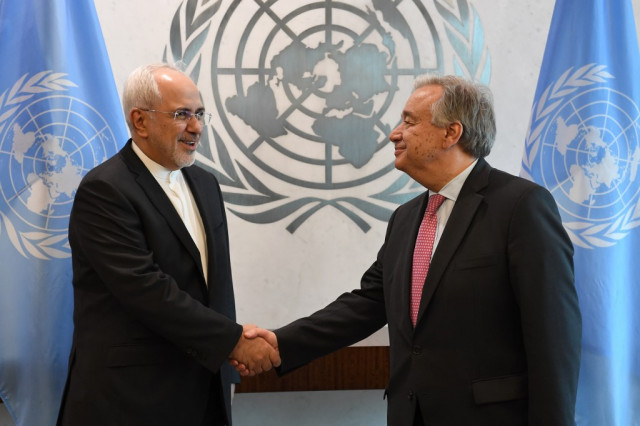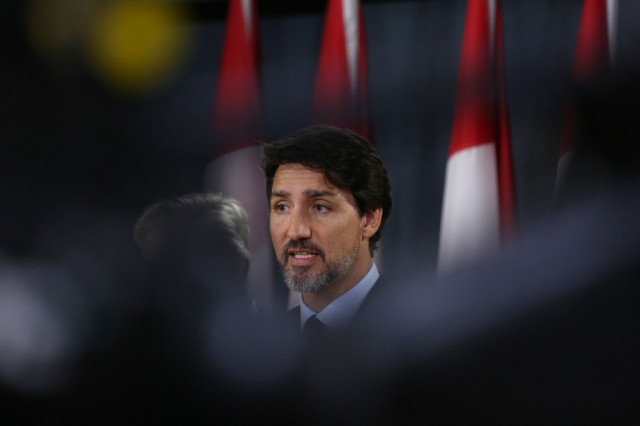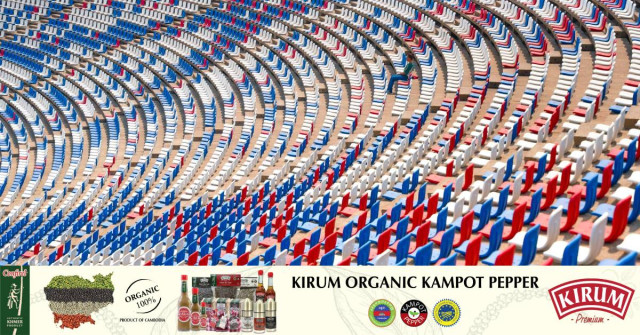How UN scrutinises Iran's nuclear programme

- Agence France Press
- May 8, 2019 11:02 AM
Vienna, Austria | Iran's announcement on Wednesday that
it would no longer respect limits on nuclear activities under a landmark 2015
deal have raised fresh fears over whether the painstakingly negotiated accord
can survive.
Tehran's move comes a year to the day since US President
Donald Trump dramatically withdrew from the agreement and proceeded to
re-introduce sanctions which have hit the Iranian economy hard.
The UN's Vienna-based nuclear watchdog, the International
Atomic Energy Agency (IAEA), has had the delicate task of verifying the deal,
known as the Joint Comprehensive Plan of Action (JCPOA), through regular
inspections of Iranian facilities.
- Will Iran's move affect inspections? -
Iran did not announce any measures on Wednesday which would
appear to impede the IAEA's inspection regime.
"If it's just a matter of now they are starting to
accumulate a quantity (of heavy water or uranium) larger than agreed upon, the
IAEA will know that within a week," said Robert Kelley, a former director
of nuclear inspections at the IAEA.
"As long as everything is under IAEA safeguards and
inspected daily, everyone will know exactly what is going on," Kelley
added.
The IAEA insists the inspection regime put in place by the
JCPOA is the world's toughest, and in each of its quarterly reports on Iran it
has confirmed that Tehran is abiding by the deal.
Under the "Additional Protocol" agreed with Iran,
inspectors may "conduct complementary access to any location in
Iran".
The agency says that its inspection work has doubled since
2013.
IAEA Secretary General Yukiya Amano says the agency's
inspectors spend a total of 3,000 calendar days per year on the ground in Iran.
He has also highlighted some 2,000 tamper-proof seals
attached to nuclear material and equipment and the "hundreds of thousands
of images captured daily by our sophisticated surveillance cameras", the
number of which has almost doubled since 2013.
- Why the IAEA? -
Set up in 1957, the IAEA promotes peaceful uses of atomic
energy while at the same time overseeing efforts to detect and prevent possible
nuclear weapons proliferation.
Because of previous international concern over its nuclear
programme, Iran agreed in 2003 to allow snap IAEA inspections of its nuclear
facilities.
However, cooperation broke down in 2006. The IAEA referred
Iran to the UN Security Council, which went on to impose sanctions, and Iran
halted enhanced IAEA inspections.
A renewed diplomatic push eventually led to the JCPOA in
2015, under which the agency is charged with regular inspections of declared
facilities in Iran such as uranium mines and centrifuge workshops for up to 25
years.
The aim is to ensure that Iran is not holding undeclared
stocks of nuclear material and is not enriching uranium past a certain level.
- Political pressures -
In addition to the US withdrawing from the deal, Israel --
Iran's regional arch-foe -- has also been highly critical of the JCPOA.
In August 2017, Washington's envoy to the UN Nikki Haley
urged the IAEA to widen its inspections, including to military sites.
A year later in an address to the UN General Assembly,
Israeli Prime Minister Benjamin Netanyahu claimed Iran had a "secret
atomic warehouse" as part of a clandestine nuclear programme and called on
the IAEA to inspect the site immediately.
In January, Amano rejected pressure on the agency, saying:
"If our credibility is thrown into question, and, in particular, if
attempts are made to micro-manage or put pressure on the Agency in nuclear
verification, that is counter-productive and extremely harmful."
In its most recent reports on the JCPOA, the agency has also
taken to reminding Iran that "timely and proactive co-operation" in
providing access to locations it wishes to inspect would "enhance
confidence".
© Agence France-Presse















